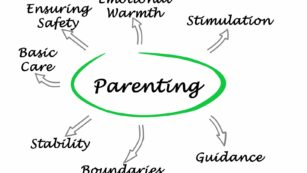Parenting is a journey filled with joy, challenges, and endless learning opportunities. As guardians of the next generation, parents constantly seek ways to ensure their children’s safety while nurturing their growth and independence. From choosing the right educational tools to creating safe play environments with essentials like soft play mats, every decision plays a vital role in a child’s development. In today’s fast-paced world, where technology and societal norms rapidly evolve, staying informed about effective parenting strategies is more crucial than ever.
Safety in parenting isn’t just about physical protection; it also encompasses emotional and mental well-being. From creating a secure home environment to fostering open communication, parents can adopt various approaches to safeguard their children’s overall health. By integrating these safe parenting tips into daily routines, caregivers can build a foundation of trust and security that supports their child’s development.
With the right tools and knowledge, parents can navigate the complexities of raising children in a modern world. This article explores essential tips that empower parents to create a nurturing and safe environment for their little ones.
Safe Parenting Tips
Ensuring Child Safety at Home
Secure the home environment by removing hazards. Use baby gates for staircases, cover electrical outlets, and keep toxic substances out of reach. Install smoke detectors in key areas like the kitchen and bedrooms, testing them monthly.
 Providing Emotional Security
Providing Emotional Security
Cultivate a nurturing atmosphere. Encourage open communication by listening attentively without judgment, fostering trust. Maintain routines to give children stability, as predictability helps in building emotional security.
Navigating Online Safety
Educate children about internet safety by setting clear guidelines. Use parental controls on devices and discuss the importance of privacy settings. Regularly monitor online activities to ensure age-appropriate content access.
Promoting Physical Activity
Encourage regular exercise, which boosts physical and mental health. Plan family-oriented sports like biking or hiking, and limit screen time to ensure outdoor play.
Teaching Personal Safety Skills
Educate children on personal safety techniques. Teach them to recognize and handle unsafe situations, emphasizing the “stranger danger” concept while providing strategies for seeking help.
Creating a Safe Home Environment
Childproofing Essentials & Preventing Accidents
 Installing childproofing items reduces indoor hazards. Safety gates block access to stairs and hazardous areas such as kitchens. Outlet covers prevent electrical shocks by covering exposed sockets. Cabinet locks stop children from accessing chemicals, medications, or sharp objects. Secure furniture and televisions to walls to prevent tipping. Use window guards or stops to protect against falls.
Installing childproofing items reduces indoor hazards. Safety gates block access to stairs and hazardous areas such as kitchens. Outlet covers prevent electrical shocks by covering exposed sockets. Cabinet locks stop children from accessing chemicals, medications, or sharp objects. Secure furniture and televisions to walls to prevent tipping. Use window guards or stops to protect against falls.
Clearing clutter reduces fall risks in common areas and walkways. Store small objects and toys to avoid choking hazards. Supervise water-related activities, keeping bathtubs and buckets empty when not in use.
Setting Healthy Boundaries
Communication and Discipline
Effective communication forms the foundation of setting boundaries. Parents engage in open dialogues with their children, offering explanations about rules and consequences. This approach empowers children to understand the reasons behind guidelines, promoting cooperation and respect. Discipline strategies embody consistency and fairness, using positive reinforcement to encourage desirable behaviors.
Monitoring Online Activities
Preserving children’s online safety involves active monitoring and guidance. Parents set clear guidelines for internet use, defining acceptable websites and screen time limits. Utilizing parental control tools helps oversee digital activities while fostering trust through periodic check-ins. Educating children about online risks, such as privacy settings and the dangers of sharing personal information, further enhances their digital protection.
Navigating Social Interactions
 In today’s interconnected world, guiding children through social interactions is crucial for their development. Parents play a vital role in teaching social skills by encouraging respectful communication and empathy. It’s important for parents to model positive interactions and provide opportunities for children to engage with peers in various settings.
In today’s interconnected world, guiding children through social interactions is crucial for their development. Parents play a vital role in teaching social skills by encouraging respectful communication and empathy. It’s important for parents to model positive interactions and provide opportunities for children to engage with peers in various settings.
Organizing playdates and participating in community activities can help children build friendships and develop social confidence. Parents should also discuss the importance of boundaries and respecting others’ personal space. By fostering these skills, children learn to navigate social situations with ease and build healthy relationships.
Ultimately, safe parenting involves a holistic approach that blends physical, emotional, and social well-being. By implementing these strategies, parents can create a nurturing environment where children feel secure and empowered to thrive in every aspect of their lives.

